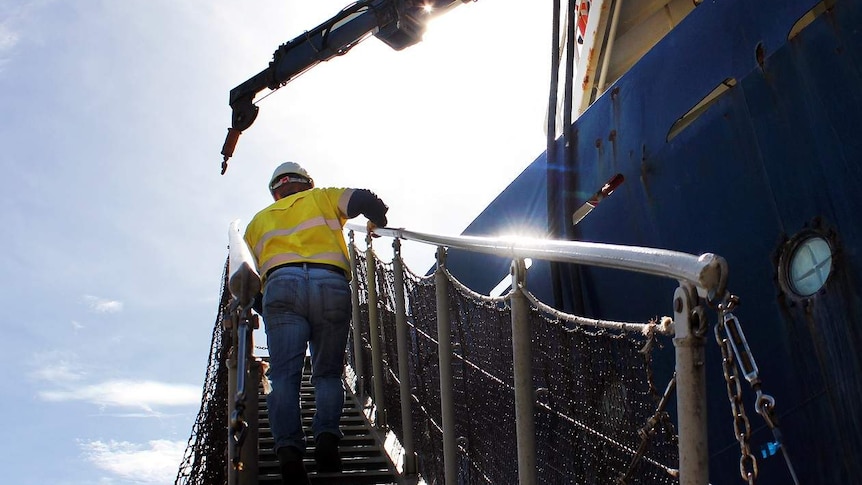School Suspensions: Do The Drawbacks Outweigh The Benefits?

Table of Contents
The Negative Impacts of School Suspensions
School suspensions, while often viewed as a quick disciplinary solution, carry significant negative repercussions for students and the school community as a whole.
Increased Risk of Academic Failure
A strong correlation exists between school suspensions and lower academic performance. Students facing suspension often experience increased absenteeism, leading to missed classes, incomplete assignments, and ultimately, lower grades. This cycle can contribute to higher dropout rates and severely limit future educational attainment. Studies have consistently shown that suspended students are significantly more likely to fall behind their peers academically.
- Lower GPAs: Research indicates a direct link between the number of suspensions a student receives and their overall GPA.
- Increased Absenteeism: Suspensions disrupt a student's learning routine and create a gap in their educational progress.
- Higher Dropout Rates: Students who experience multiple suspensions are at a significantly increased risk of dropping out of school altogether.
- Limited Future Opportunities: The negative impact on academic transcripts can restrict access to higher education and future career prospects. The long-term consequences of poor academic performance are far-reaching.
The Social and Emotional Consequences
Beyond academic setbacks, school suspensions have profound social and emotional ramifications. The isolation and alienation experienced by suspended students can lead to increased emotional distress, feelings of inadequacy, and a heightened risk of behavioral problems. The stigma associated with suspension can further exacerbate these challenges, making it difficult for students to reintegrate into the school community.
- Social Isolation: Suspension removes students from their social support networks, leading to feelings of loneliness and isolation.
- Emotional Distress: The experience of suspension can be deeply traumatic, resulting in anxiety, depression, and low self-esteem.
- Increased Risk of Delinquency: Suspended students are more likely to engage in risky behaviors, including substance abuse and criminal activity.
- Difficulties Reintegrating: Returning to school after a suspension can be challenging, requiring significant effort from both the student and the school.
Disproportionate Impact on Minority Students
A disturbing trend reveals racial and ethnic disparities in school suspension rates. Minority students, particularly African American and Hispanic students, are disproportionately suspended compared to their white peers, even when controlling for factors like socioeconomic status and behavioral issues. This disparity points to systemic biases within school disciplinary practices and highlights the urgent need for educational equity.
- Racial Bias in Discipline: Studies demonstrate that unconscious biases can influence disciplinary decisions, leading to harsher punishments for minority students.
- Lack of Cultural Sensitivity: Disciplinary practices may not adequately address the cultural backgrounds and needs of diverse student populations.
- Zero-Tolerance Policies: Rigid zero-tolerance policies can disproportionately affect minority students, leading to higher suspension rates.
Arguments in Favor of School Suspensions
While the negative impacts of school suspensions are substantial, proponents argue that they serve essential functions in maintaining order and deterring undesirable behavior.
Maintaining Order and Safety
In certain situations, removing a disruptive student from the school environment may be necessary to ensure the safety and well-being of other students and staff. Suspensions can be considered a tool for maintaining order and creating a positive learning environment for the majority of students.
- Serious Offenses: Suspensions may be justified in cases of severe misconduct, such as violence or possession of weapons.
- Protecting Other Students: Removing a disruptive student can prevent further incidents and ensure a safe learning environment for everyone.
- Immediate Intervention: In situations requiring immediate intervention, suspension can provide a necessary temporary solution.
Deterring Undesirable Behavior
Some believe that the threat of suspension can deter students from engaging in misbehavior. However, this argument is debatable, as research suggests that suspension is often ineffective in changing long-term behavior and may even have unintended negative consequences.
- Short-Term Solution: Suspension often addresses the immediate problem but fails to address the underlying causes of misbehavior.
- Limited Effectiveness: Many studies demonstrate that suspensions do not effectively reduce future misbehavior.
- Potential for Negative Reinforcement: Suspension can inadvertently reinforce negative behaviors if not accompanied by positive interventions.
Exploring Alternative Disciplinary Approaches
Recognizing the limitations of school suspensions, educators are increasingly turning to alternative disciplinary approaches that promote positive behavior and address the root causes of misbehavior.
Restorative Justice Practices
Restorative justice practices emphasize repairing harm and fostering accountability through dialogue and collaboration between the offender, victim, and community. These methods focus on understanding the impact of actions and developing solutions that promote healing and reconciliation, offering a powerful alternative to punitive measures like suspension.
- Focus on Repairing Harm: Restorative justice aims to address the underlying issues that led to the misbehavior.
- Collaboration and Dialogue: It involves open communication between all parties involved to find solutions together.
- Increased Accountability: Students take ownership of their actions and understand the impact on others.
Positive Behavior Interventions and Supports (PBIS)
PBIS is a proactive approach to behavior management that focuses on teaching and reinforcing positive behaviors. Through clear expectations, consistent reinforcement, and effective interventions, PBIS aims to create a positive school climate and reduce the need for punitive disciplinary measures such as suspensions.
- Proactive Approach: PBIS focuses on preventing misbehavior before it occurs.
- Positive Reinforcement: It emphasizes rewarding positive behaviors rather than punishing negative ones.
- Data-Driven Decisions: PBIS uses data to monitor student behavior and adjust interventions as needed.
Conclusion: Rethinking School Suspensions – A Call for Change
The evidence overwhelmingly suggests that the drawbacks of school suspensions significantly outweigh their benefits. The negative impact on academic performance, social and emotional well-being, and the disproportionate effect on minority students necessitate a critical re-evaluation of this common disciplinary practice. We must embrace alternative discipline strategies such as restorative justice and PBIS, focusing on proactive interventions, positive reinforcement, and addressing the root causes of misbehavior. Let us advocate for school discipline reform, promoting positive behavior interventions and reducing our reliance on school suspensions. The future of effective and equitable education demands it.

Featured Posts
-
 Missouri Hockey History Clayton Keller Hits 500 Nhl Points
May 03, 2025
Missouri Hockey History Clayton Keller Hits 500 Nhl Points
May 03, 2025 -
 Chinese Ships Near Sydney Increased Naval Presence Prompts Australian Caution
May 03, 2025
Chinese Ships Near Sydney Increased Naval Presence Prompts Australian Caution
May 03, 2025 -
 Australian Authorities Respond To Growing Number Of Chinese Ships Near Sydney
May 03, 2025
Australian Authorities Respond To Growing Number Of Chinese Ships Near Sydney
May 03, 2025 -
 Official Lotto Results Wednesday April 16 2025
May 03, 2025
Official Lotto Results Wednesday April 16 2025
May 03, 2025 -
 Get The Latest Winning Numbers Lotto Lotto Plus 1 Lotto Plus 2
May 03, 2025
Get The Latest Winning Numbers Lotto Lotto Plus 1 Lotto Plus 2
May 03, 2025
Latest Posts
-
 Investment In Belgian Energy A 270 M Wh Bess Financing Case Study
May 04, 2025
Investment In Belgian Energy A 270 M Wh Bess Financing Case Study
May 04, 2025 -
 Belgiums Energy Market Financing Options For A 270 M Wh Bess
May 04, 2025
Belgiums Energy Market Financing Options For A 270 M Wh Bess
May 04, 2025 -
 Challenges And Solutions Financing A 270 M Wh Bess In Belgium
May 04, 2025
Challenges And Solutions Financing A 270 M Wh Bess In Belgium
May 04, 2025 -
 Securing Funding For A 270 M Wh Bess Project In The Belgian Merchant Market
May 04, 2025
Securing Funding For A 270 M Wh Bess Project In The Belgian Merchant Market
May 04, 2025 -
 270 M Wh Battery Energy Storage System Bess Financing In Belgium
May 04, 2025
270 M Wh Battery Energy Storage System Bess Financing In Belgium
May 04, 2025
